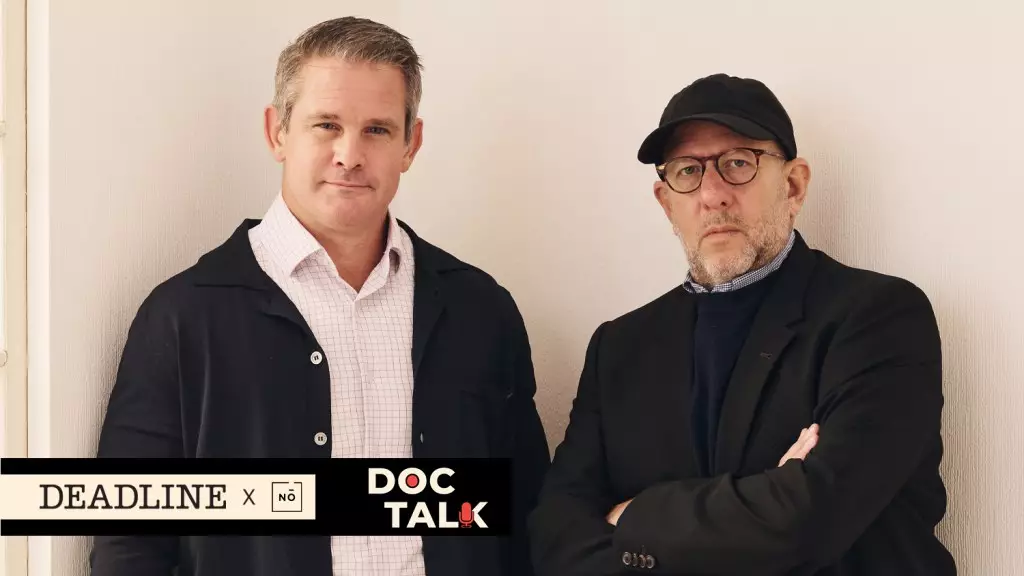Adam Kinzinger, once a rising star in the Republican Party, now finds himself navigating the treacherous waters of political opposition, particularly following the events of January 6th, 2021. Kinzinger’s pivotal decision to join the select committee investigating the Capitol insurrection marked a significant break from not just his political allies, but essentially from a party that once embraced his candidacy. This shift has not only painted him as a pariah among his former comrades, but has also positioned him as an unexpected icon of resistance for many Democrats. His recent interview on the Deadline Doc Talk podcast lays bare the personal and political ramifications of his decision—a journey filled with both commendable courage and profound sacrifice.
The act of dissent in a hyper-polarized political climate carries risks that go beyond mere reputation; for Kinzinger and his family, these risks have manifested as grave threats to their safety. In his discussion, Kinzinger reveals that he, his wife, and their small child have become the targets of relentless death threats from Trump loyalists. This stark reality underscores the alarming trend of violence and intimidation faced by those who oppose the mainstream Republican narrative in the age of Trump. Moreover, the fallout extends beyond his immediate family, as Kinzinger describes the distress experienced by his parents, who have encountered hostility even from their own friends and relatives due to their son’s principled stand. This chilling account exemplifies just how personal the stakes are for politicians willing to dissent.
Bonding Over Unlikely Circumstances
At the Toronto International Film Festival, Kinzinger premiered a documentary titled “The Last Republican,” a work that captures his transformation from GOP darling to a figure of controversy. This film, directed by Steve Pink, serves not only as a commentary on Kinzinger’s journey but also highlights the surprising friendships that can arise from shared experiences. Kinzinger shares a poignant anecdote about how he and Pink—representing vastly different political spectrums—found common ground through a shared appreciation for the film “Hot Tub Time Machine.” Such instances of camaraderie amidst discord are critical in understanding the human dimensions of political engagement.
In a moment of introspection, Kinzinger voiced a regret that resonates with many political figures who have encountered similar crossroads: failing to execute a more profound change within their party following the January 6th assault. His sentiment—wanting to lead “our own coup in the Republican party”—hints at deeper frustrations among those who have believed that the GOP has strayed too far from its foundational values. This admission raises profound questions about accountability and the moral obligations of political leaders. It reflects a struggle familiar to many reform-minded individuals who grapple with the complexities of loyalty versus ethical imperatives.
The discussions surrounding Kinzinger’s film dovetail with broader trends emerging at TIFF, where documentaries are being utilized as vessels to narrate personal and collective stories of resistance, history, and creativity. Other notable collaborations showcased at the festival include work from acclaimed creators like Nobel laureate Malala Yousafzai and Raoul Peck, whose diverse storytelling styles enrich public discourse. Filmmakers are increasingly exploring themes that resonate with contemporary audiences, addressing issues of identity, politics, and resilience through innovative mediums.
Kinzinger’s journey exemplifies the complex intersection of personal conviction and political reality in today’s climate. As he navigates the fallout of his principled decision, he becomes emblematic of a broader narrative—one that champions authenticity and integrity over blind allegiance. His experiences serve as a reminder that, in the face of adversity, courage often comes with a significant price. In an era where silence can be safer, Kinzinger’s willingness to speak out may yet inspire a new generation of leaders willing to assert their beliefs, regardless of the personal costs involved. Ultimately, his story is not just about one man’s fight against an authoritarian trend; it speaks to the importance of principled leadership in the ever-evolving landscape of American politics.



Leave a Reply